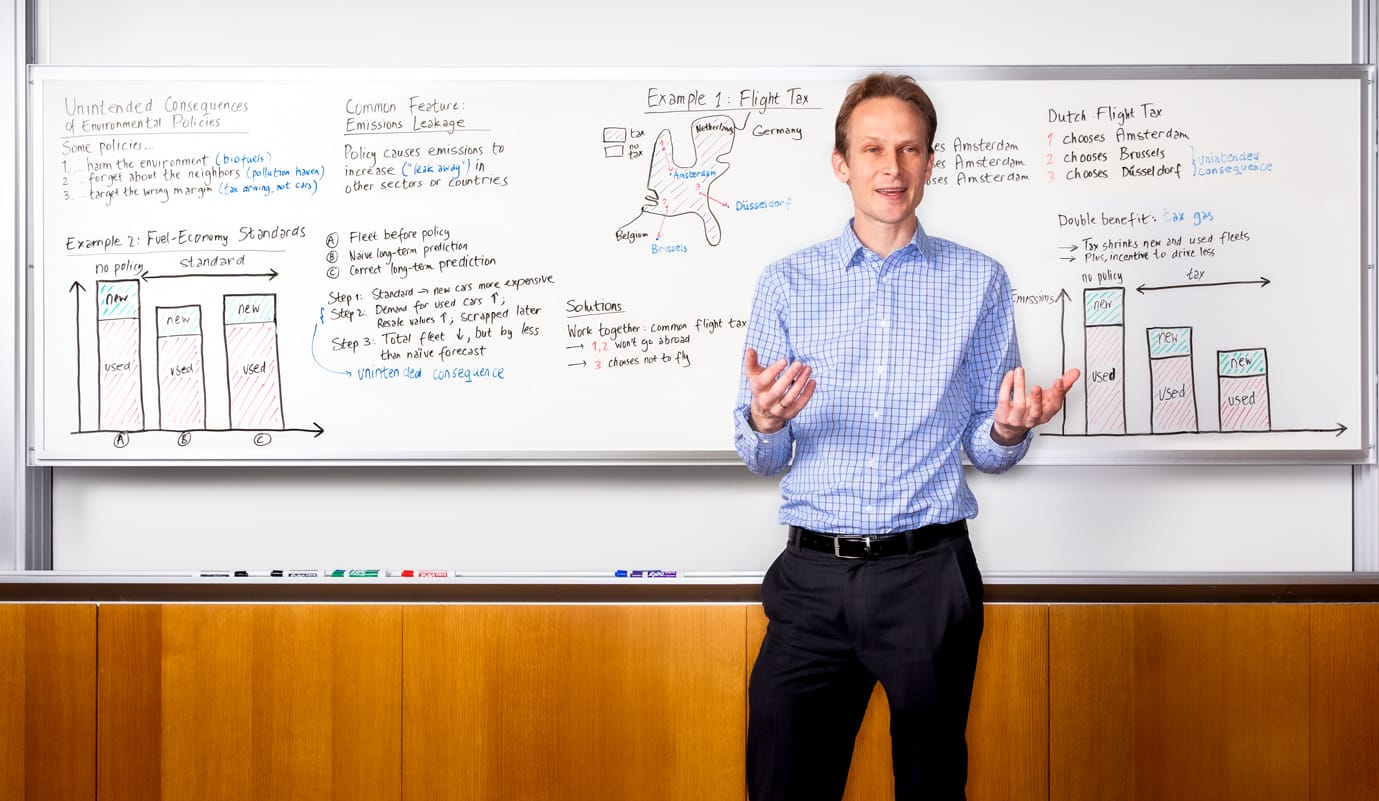Well-intentioned governments want to address climate change, but some of the policies imposed on industries and consumers can backfire, causing more harm than good, according to business economics and public policy assistant professor Arthur van Benthem. In his whiteboard lecture “Unintended Consequences of Environmental Policies,” drawn from his popular MBA course Energy Markets and Policy, he provides dramatic examples, urges policymakers to use caution and common sense, and notes that clean technology resonates in the classroom. “Many MBA students are interested in clean-tech venture capital,” van Benthem says, “where it used to be oil and gas investment banking.”
A classic illustration of unintended consequences of environmental policies is a phenomenon known as emissions leakage. Think Whac-A-Mole: “You tighten rules in one country or sector, but even though you clean it up in your country, you push it to another country or sector, so you’re not solving the problem.” A decade ago, when the Netherlands wanted to reduce air travel, politicians imposed a tax on flights taking off from Amsterdam. The unfortunate result? Not an overall reduction in air travel, but a corresponding uptick in passengers avoiding the tax by driving to nearby airports in Brussels and Düsseldorf.
In the U.S., emissions leakage plays out in the automobile industry with fuel economy standards. “New cars must not fall below a certain number of miles per gallon on average,” says van Benthem. “But the standard makes new cars more expensive … and fewer new cars are sold.” According to the professor’s research, consumers buy used cars instead, so the emissions benefits of new cars are undercut by a larger old-car fleet.
Can we design better policies? Hopefully, yes. Van Benthem suggests a joint approach among countries. Were Germany and Belgium to impose the same flight tax as the Netherlands, for example, “There would be no reason to drive to Brussels or Düsseldorf,” and some people would decide not to fly. “Now you get a reduction in air travel.”
In an ideal world, van Benthem says, U.S. legislators would discourage driving by taxing gasoline. But raising taxes in America is a political can of worms. “We are stuck with standards, but there is a laundry list of loopholes,” he says. “So let’s at least close these loopholes.”
Published as “At the Whiteboard With Arthur van Benthem” in the Spring/Summer 2020 issue of Wharton Magazine.

























